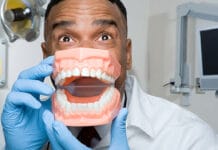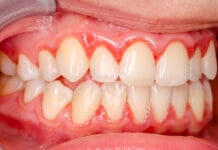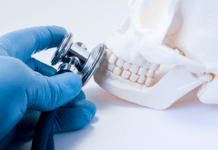A positive attitude in the dental office is essential for a successful practice. Patients who enter your operatory can typically tell if this is a positive and friendly environment. Are co-workers smiling and saying hello as they walk by? Are dental assistants friendly chatting while they seat a patient? Does your doctor stop in to offer a warm greeting?
These are signs that a positive environment may exist. A positive demeanor can significantly impact your chairside manner, productivity, and the overall success of the office.
Optimistic Management of Stress
Positive thinking can help hygienists and other dental office employees to develop a sense of optimism. The Mayo Clinic Healthy Lifestyle blog shares that optimism can be a “key part of effective stress management.”1 Think about the things that may cause you stress as a hygienist ‒ a chaotic schedule, being double booked, or a radiograph unit that goes down suddenly. These may cause the most positive of individuals to feel tension and stress during their clinical day.
However, when we are already part of a positive environment, our automatic thoughts about an uncomfortable or worrisome situation automatically switch to a more positive or productive assumption. Instead of having feelings of despair, snapping at a co-worker because of negative feelings, or throwing our hands up in defeat, we pull together, put a smile on our faces, and get to fixing the problem.
The power of positivity is just that: It’s a way, a method, an outlook that leads us to look for the positive in every situation instead of the negative.
Mutual Positive Support
Positivity can also help to create a strong team atmosphere with employees feeling supported and valued by their dental colleagues. I’ll venture to say that everyone wants to be in an environment where there is respect, trust, and openness.
When we have a culture of positivity, there is a sense of family and belonging where people are cared for, have fun, work hard, and share in successes and opportunities.
Teamwork is an important aspect of dentistry. From the individual who checks in your patient when they walk in the door to the assistant who helps to clean up the operatory at the end of the patient visit, it takes everyone working together to create a successful practice, and teamwork requires positivity. Happy individuals are more successful in life, especially at work, as one study found.2 When individuals are part of a positive environment, they will be more likely to give their best, which may translate into better patient care.
Sharing Your Authentic Self
A positive team environment is fun to be part of. We spend so much of our lives working; most people want to be in a place where positivity is the norm. Now I’m not talking about sunshine and roses all the time ‒ that is just not realistic. But I am talking about the dental practice where people feel comfortable being their authentic selves, where there is sharing and caring, and where there is friendliness, smiling, and laughter daily.
When people feel good about their work and the environment they are in, they will be more likely to be productive and engaged members of the office.
Practice Being Positive
Positivity is a state of mind; some people are born with it, and some are not. The good news is that positive thinking can be learned and developed. In a 2009 study, it was discovered that, on average, a new behavior would become automatic after practicing or working on it for 66 days.3 Here are three daily practices that will help you become a more positive individual in your office.
1) Practice gratitude: Show appreciation towards your fellow co-workers. If a dental assistant helped to clean your operatory, say thanks. When your office manager worked overtime to fill your schedule, take a minute to offer a kind word of acknowledgment. Gratitude has a “spillover effect,” so when you say something nice to someone, chances are that person will pass on gratitude to another.4
2) Give shout-outs: A shout-out is a way to recognize a co-worker who has helped you or has gone above and beyond to make your day special or run smoothly. Maybe you have an amazing hygiene assistant who consistently shows up early to set up your hygiene room.
When you recognize someone by paying special attention to this individual, you are helping to create a positive environment. Giving praise in this manner is easy! Say a special thank you at your morning huddle, write a thank you note and post it in the breakroom, or bring in a favorite treat to share in honor of the individual.
3) Practice empathy: When you give your full attention to people around you, you show that you care and are interested in that individual as another human being. Sincere interest goes a long way in creating a positive workplace. If you are not someone who likes to chit-chat, practice talking to people at your office in small increments. Ask a few open-ended questions such as “How is your son doing in school?” or “Didn’t you just get a new puppy?’ Taking a true interest in those around you can bring about a wealth of positive interactions.
In Closing
Ultimately, a positive attitude in the dental office is essential for success. You can be a breath of fresh air in your office by presenting with a pleasant demeanor, monitoring your mood and adjusting accordingly, smiling, and acknowledging your co-workers with pleasantries. Not only will a positive demeanor help you during your workday, but it will also help you in life. With the right outlook, your dental office can be a positive workplace where your hygiene career thrives and succeeds.
Before you leave, check out the Today’s RDH self-study CE courses. All courses are peer-reviewed and non-sponsored to focus solely on high-quality education. Click here now.
Listen to the Today’s RDH Dental Hygiene Podcast Below:
References
- Mayo Clinic Staff. (2022, February 3). Positive thinking: Stop Negative Self-talk to Reduce Stress. Mayo Clinic. https://www.mayoclinic.org/healthy-lifestyle/stress-management/in-depth/positive-thinking/art-20043950
- Lyubomirsky, S., King, L., Diener, E. The Benefits of Frequent Positive Affect: Does Happiness Lead to Success? Psychological Bulletin. 2005; 131(6): 803-855. https://www.apa.org/pubs/journals/releases/bul-1316803.pdf
- Lally, P., van Jaarsveld, C.H.M., Potts, H.W.W., Wardle, J. How Are habits Formed: Modelling Habit Formation in the Real World. European Journal of Social Psychology. 2010; 40(6): 998-1009. https://doi.org/10.1002/ejsp.674
- Grant, A., Gino, F. A Little Thanks Goes a Long Way: Explaining Why Gratitude Expressions Motivate Prosocial Behavior. Journal of Personality and Social Psychology. 2010; 98(6): 946-955. https://www.umkc.edu/facultyombuds/documents/grant_gino_jpsp_2010.pdf
















